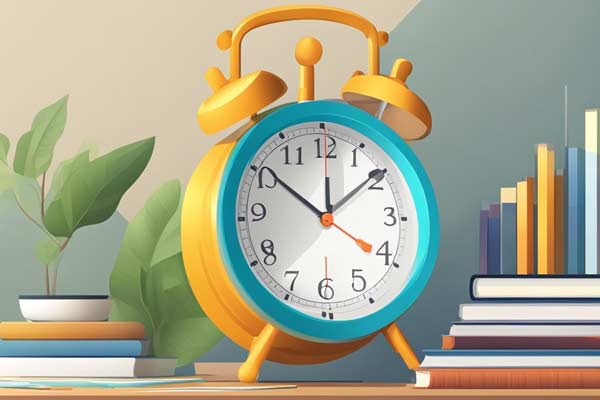IELTS vs. TOEFL: The Ultimate Showdown for English Learners!
You may be required to take an English proficiency test when studying or working in an English-speaking country.
While both tests assess your English language skills, they have some significant differences to consider when deciding which one to take.
One primary distinction between IELTS and TOEFL is how they are administered. IELTS uses a paper-based format, whereas TOEFL is delivered via computer.
IELTS may be a better option for those who prefer working on paper, while TOEFL may be more suitable for those comfortable with technology.
Additionally, IELTS has a face-to-face speaking component, while TOEFL’s speaking section is done through a microphone and headset.
This may be a factor to consider if you are more comfortable speaking with someone or prefer the anonymity of a computer-based test.
Understanding IELTS and TOEFL
IELTS Overview
The IELTS is a standardized test assessing the English proficiency of non-native speakers. The IELTS comes in two formats: Academic and General Training.
The Academic IELTS is tailored for individuals aiming to study at English-speaking academic institutions.
On the other hand, the General Training IELTS is for those planning to migrate to or work in English-speaking countries in non-academic capacities.
The IELTS comprises four modules: Listening, Reading, Writing, and Speaking. The Listening and Reading modules offer multiple-choice questions, the Writing module demands essays, and the Speaking module evaluates fluent English communication. Scores start from 1 to 9 on a band scale, with 9 being the pinnacle.
TOEFL Overview
The TOEFL is a standardized English proficiency test designed for non-native English speakers. Unlike the IELTS, which offers multiple formats, TOEFL is exclusively provided as the TOEFL iBT, an internet-based test.
🌟 Hey Students! 🚀 Ready for the ultimate experience? Join us on Studentsinside.com's Facebook, YouTube, WhatsApp, and LinkedIn. Click now for tips, fun, and success vibes! 🌈✨ #StudentLife #JoinUs
The TOEFL iBT exam consists of four sections: Reading, Listening, Speaking, and Writing.
The Reading and Listening sections are multiple-choice, the Writing section requires test-takers to write essays, and the Speaking section assesses their ability to speak English fluently.
The test is scored on a scale of 0-120, with 120 being the highest score.
Exam Format
The IELTS and TOEFL exams have different formats. IELTS is available in paper-based and computer-based formats, while TOEFL is only in computer-based format. The IELTS exam takes about 2 hours and 45 minutes, while the TOEFL iBT exam takes about 4 hours.
Speaking Section
The Speaking section of both exams assesses the test-taker’s ability to speak English fluently. In the IELTS exam, the Speaking section is a face-to-face interview with an examiner.
In contrast, in the TOEFL iBT exam, multiple examiners record and evaluate the Speaking section. Both exams assess the test-taker’s ability to speak English in various contexts, such as classroom lectures, short passages, and conversations.
Writing Section
The Writing section of both exams assesses the test-takers ability to write essays in English. In the IELTS exam, the Writing section consists of two tasks: Task 1 requires test-takers to describe visual information, while Task 2 requires writing an essay on a given topic.
In the TOEFL iBT exam, the Writing section consists of two tasks: Task 1 requires test-takers to summarize a lecture or passage, while Task 2 requires writing an essay on a given topic.
Reading and Listening Sections
Both exams’ Reading and Listening sections assess the test-taker’s ability to understand written and spoken English.
The Reading and Listening sections in the IELTS exam consist of multiple-choice questions based on various texts and recordings.
In the TOEFL iBT exam, the Reading and Listening sections consist of multiple-choice questions based on academic lectures and conversations.
Scoring
Both exams use different scoring systems. The IELTS exam is scored on a band scale of 1-9, while the TOEFL iBT exam is scored on a scale of 0-120. Both exams assess the test-taker’s ability to use English in various contexts, such as academic settings and everyday life.
Cost
The IELTS exam costs vary depending on the country, but it usually ranges from $150 to $250. The cost of taking the TOEFL iBT exam also varies depending on the country, but it usually ranges from $160 to $250.
Conclusion
In conclusion, the IELTS and TOEFL exams are standardized English proficiency tests that measure the language skills of non-native English speakers.
Both exams have different formats, but they assess the test-takers’ ability to use English in various contexts, such as academic settings and everyday life.
Test-takers should choose the exam that best suits their needs and goals, whether it is to study in an English-speaking academic institution or to migrate to an English-speaking country.
Comparison of IELTS and TOEFL
Both tests aim to assess the English language skills of non-native speakers, but there are some differences between the two.
In this section, we will compare IELTS and TOEFL in terms of their format and structure, scoring and results, and cost.
Format and Structure Comparison
A critical distinction between IELTS and TOEFL lies in their structure and format. IELTS is available in two variants: Academic and General Training.
The Academic variant targets individuals aiming for higher education in universities, while the General Training variant caters to those looking to work or migrate to an English-speaking nation.
Both IELTS versions include four segments: Listening, Reading, Writing, and Speaking. However, while the Listening and Speaking segments remain consistent across both versions, the Reading and Writing sections vary.
On the other hand, TOEFL is presented in a single format with four segments: Reading, Listening, Speaking, and Writing. The test is digitally administered, featuring multiple-choice questions in the Reading and Listening sections.
For the Speaking and Writing segments, examinees must address specific prompts. TOEFL utilizes an assortment of texts, lectures, and dialogues to evaluate an individual’s proficiency in English.
Scoring and Results Comparison
Another difference between IELTS and TOEFL is their scoring and results. IELTS uses a band score system, which ranges from 0 to 9.
Each section receives an individual score; the final band score is controlled by averaging these four section scores. Participants will receive their results within 13 days after the test.
Conversely, TOEFL uses an iBT score system ranging from 0 to 120. Each section is scored separately, and the overall iBT score is calculated by adding the four section scores together. Test-takers receive their scores within ten days of taking the test.
Cost Comparison
Finally, there is a difference in cost between IELTS and TOEFL. The cost of IELTS varies depending on the country and test center, but it typically ranges from $150 to $250.
TOEFL is slightly more expensive, ranging from $160 to $250. However, it’s worth noting that some institutions may require additional fees for score reports or other services.
IELTS and TOEFL for Migration and Study Abroad
Proving your English language skills is typically essential for those planning to study or relocate to an English-speaking nation.
The IELTS and the TOEFL are the two predominant tests for this objective. Although both are designed to evaluate English proficiency, they have distinct characteristics.
IELTS and TOEFL in Australia
In Australia, both IELTS and TOEFL are widely accepted by universities and immigration authorities. However, IELTS is often preferred for migration, while TOEFL is more commonly used for academic purposes.
The Department of Home Affairs accepts IELTS for all visa subclasses, while TOEFL is only accepted for some.
IELTS and TOEFL in the UK
In the UK, both IELTS and TOEFL are accepted by universities and immigration authorities. However, IELTS is more commonly used for both purposes.
All UK universities accept IELTS, which the UK Visas and Immigration for visa applications also accept. Some universities also accept TOEFL, but IELTS is less commonly used than it is.
IELTS and TOEFL in Canada
In Canada, both IELTS and TOEFL are widely accepted by universities and immigration authorities. However, IELTS is more commonly used for both purposes.
IELTS is accepted by all Canadian universities and by Immigration, Refugees, and Citizenship Canada (IRCC) for visa applications. TOEFL is also accepted by some universities and immigration authorities, but it is less commonly used than IELTS.
IELTS and TOEFL in the United States
In the United States, both IELTS and TOEFL are widely accepted by universities and immigration authorities. However, TOEFL is more commonly used for academic purposes, while IELTS is more widely used for immigration purposes.
Most US universities accept TOEFL, which Citizenship and Immigration Services also take for some visa applications. IELTS is also accepted by some universities and immigration authorities, but it is less commonly used than TOEFL.
Preparation for IELTS and TOEFL
Preparing for IELTS and TOEFL exams requires time, effort, and dedication. Here are some tips on how to prepare for these exams effectively.
Study Materials and Books
One of the best ways to prepare for IELTS and TOEFL exams is to use study materials and books. There are a lot of books available on the market that are specifically designed to help students prepare for these exams.
These books cover all the exam sections, including reading, writing, speaking, and listening. Some of the most popular IELTS and TOEFL preparation books are Cambridge IELTS, Barron’s TOEFL, and The Official Guide to the TOEFL Test.
Online and Offline Resources
In addition to study materials and books, many online and offline resources are available to help students prepare for IELTS and TOEFL exams.
Online resources include websites, blogs, podcasts, and YouTube channels that provide tips, strategies, and practice exercises. Offline resources include language schools, tutors, and study groups.
Practice Tests and Exercises
Practice tests and exercises are an essential part of IELTS and TOEFL preparation. They help students get familiar with the exam format and improve their skills in each section.
Many practice tests and exercises are available online and in books. It’s essential to take as many practice tests as possible and analyze the results to identify improvement areas.








